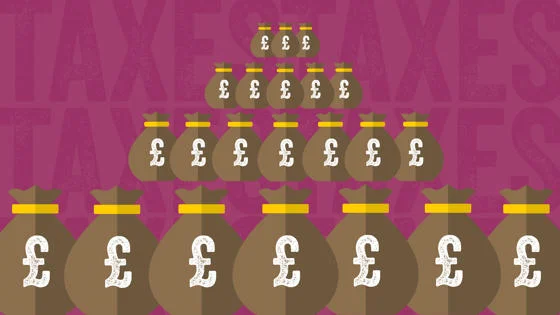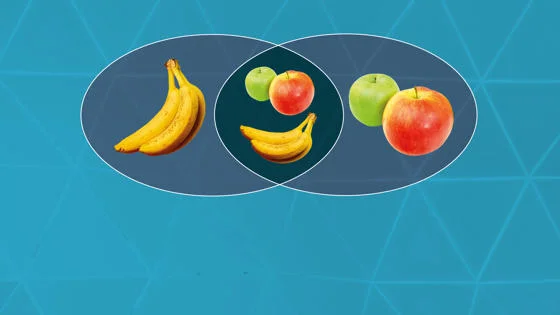Sophisticated tax evasion by the super-rich

Contents
- Tax evasion and audits: how are the top one per cent hiding their wealth?
- Sophisticated tax evasion approximately doubles the tax gap for the top 0.1 per cent earners
- If the IRS can put the right policies in place, revenue will be raised significantly
- Not just a US issue, tax evasion and avoidance concerns us all
The top one per cent of American earners fail to report about 21 per cent of their incomes to the US’s Internal Revenue Service (IRS), significantly more than was previously known.
These super–high-income taxpayers, who have so much to gain from successfully evading their taxes, are much more sophisticated at evasion than the other 99 per cent of earners.
These are the findings of research undertaken by Dr Daniel Reck, Assistant Professor of Economics at LSE, and colleagues at Carnegie Mellon University and the University of California, who worked with researchers at the IRS.
The IRS estimates that $1 out of every $6 of taxes that should be paid, is not paid. It estimates that around 60 per cent of this "tax gap" comes from under-reporting of income on individuals’ tax returns.
Conventionally, these estimates are arrived at using data from random audits. But while these may paint an accurate picture for the tax gap for 99 per cent of taxpayers, they are not accurate for the top 1 per cent, say Dr Reck and his colleagues.
This problem is much bigger than we thought or could have guessed from older data, and potential for raising revenue is larger.
Tax evasion and audits: how are the top one per cent hiding their wealth?
According to random audit data, all groups of the population under-report 4 to 5 per cent of their income, on average. Suspiciously, within the very top 0.1 per cent of taxpayers – individuals with income of more than $1.7 million – tax evasion appears to fall to extremely low levels.
In fact, Dr Reck’s research shows that at least two sophisticated types of tax evasion, which are typically not detected through random audits, are being employed by the wealthy to great effect.
The IRS began to seriously crack down on one of these, offshore tax evasion, in 2008. This culminated in the Foreign Accounts Tax Compliance Act of 2010, which led to tens of thousands of US taxpayers disclosing previously hidden offshore assets in, for example, Swiss bank accounts.
Among these taxpayers, hundreds had been randomly audited in the years immediately before their disclosure of unreported offshore assets, but their tax evasion had not been detected.
"Even excellent auditors have difficulty in detecting hidden offshore wealth," explains Dr Reck.
Sophisticated tax evasion approximately doubles the tax gap for the top 0.1 per cent earners
About 1 in 15 people with incomes in the top 0.01 per cent appear on the lists of taxpayers disclosing an offshore account following the crackdown. And, according to another study, this probably only captures 10 to 15 per cent of all offshore evasion.
Dr Reck says he was surprised by the sheer concentration of offshore evasion at the very top. "We had an idea that it would tend to be very wealthy people employing these tactics, but it was still a very striking result."
Another source of sophisticated tax evasion missed by random audits involves so called "pass-through businesses". These businesses do not remit their own income taxes, instead income "passes through" to their owners for tax purposes. This type of income is highly concentrated at the top of the income distribution.
The implication is that accounting for tax evasion, inequality is worse than we thought.
The researchers found that auditors only audit pass-through businesses in less than 5 per cent of cases where their owners were subject to random audits. Consequently, random audits uncover very little pass-through business tax evasion, even though the character and complexity of these businesses can facilitate substantial evasion.
Overall, accounting for sophisticated tax evasion approximately doubles the tax gap for the top 0.1 per cent earners, compared to conventional estimates.
If the IRS can put the right policies in place, revenue will be raised significantly
This shows that policies to fight this type of tax evasion at the top of the income distribution have a lot of potential to raise revenue.
"This problem is much bigger than we thought or could have guessed from older data, and potential for raising revenue is larger," says Dr Reck.
In fact, the study has been cited in recent proposals to massively increase the IRS’ budget and give it a mandate to pursue wealthy tax cheats.
Perhaps less obviously, the research’s findings also have important implications for the measurement of inequality. Most inequality statistics are based on tax return data, so income that is not reported on tax returns is missing from these estimates.
"The implication is that accounting for tax evasion, inequality is worse than we thought," says Dr Reck.
Not just a US issue, tax evasion and avoidance concerns us all
But is tax evasion by the uber wealthy just an American problem?
"We know that in Nordic countries, the use of offshore accounts was quite widespread. I would guess it’s a problem in the UK as well, based on that and the Panama Papers."
The Panama Papers were a massive leak of financial information from a Panamanian law company which showed that some shell companies were being used for tax avoidance or tax evasion.
In order to tackle this kind of tax evasion the OECD has set up transparency standards whereby countries exchange information, enabling tax authorities to obtain data on financial accounts held offshore by their residents.
Although its form might be different than in the US, Reck says that the UK has the same problem with sophisticated tax avoidance more broadly.
"There’s a lot of 'grey area' tax avoidance strategies which definitely skirt the spirit of the law - whether they break the letter of the law is unclear. As in the US, the problem with fighting this kind of thing is that it requires a tremendous investment of legal resources on the part of the tax authority. They have a limited budget and they can’t fight everybody."
Dr Daniel Reck was speaking to Sue Windebank, Senior Media Manager at LSE.
Download a PDF version of this article




